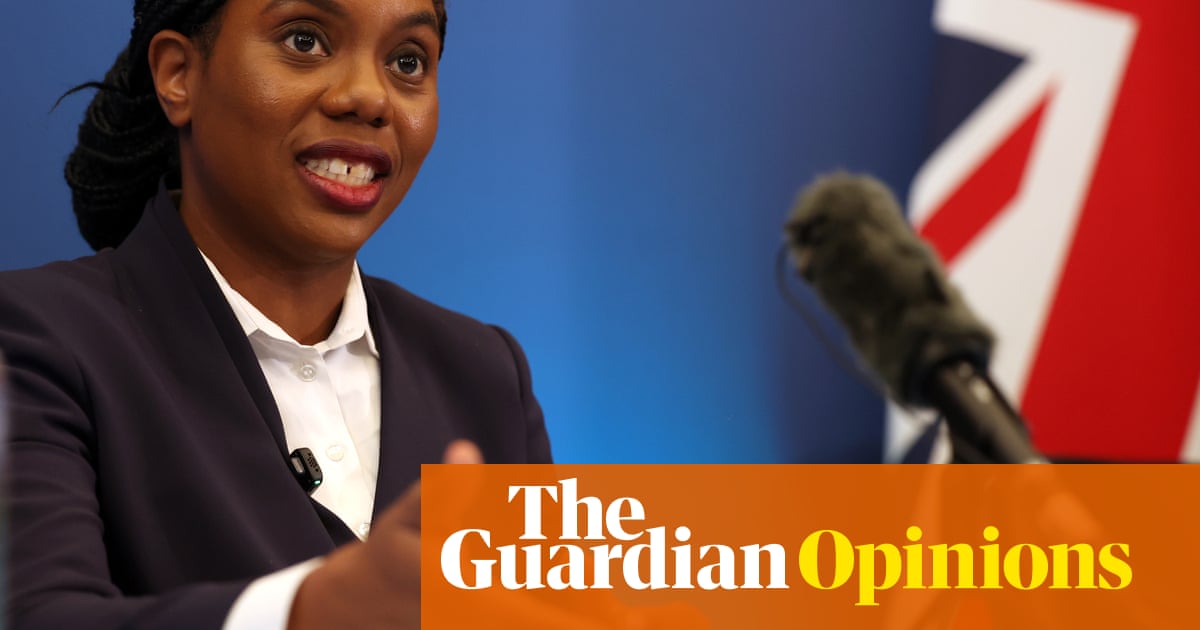As the Brexit Nostalgia festival – AKA the Earnestness of Being Unimportant – eased into its second day,Keir Starmerprepared to give a statement to the Commons on how his deal only marginally tinkered at the edges of the Brexit agreement reached by Boris Johnson and Frosty the No Man five years ago. Sorry, that should have read the deal that completely reset Britain’s relationship with the EU paving the way for years of growth and plenty. Or, as the Brexiters put it, the greatest betrayal since the last one. Take your pick.
The Labour and the Tory benches filled up in anticipation. Government backbenchers primed to take full advantage of a rare vaguely good news story. The Tories? They were there to refight the past. Because that has worked so well for them. A new YouGov poll showed the Tories in fourth place. Behind even the Lib Dems. ThoughKemi Badenochwon’t be happy until she has steered her party into fifth. A bit more climate denial and the Greens could overtake her.
Mind you, Kemi was not wholly alone in her desire to explore the Tories’ existential futility. The Unbearable Lightness of Their Being. Priti Patel was there on the frontbench, urging Kemi on to new levels of stupidity. Only that morning, Priti Vacant had toured the broadcast studios with her own peculiar brand of insanity.
Britain was suffering “the indignity of being a rule taker”, she said. She wouldn’t be happy until the UK had no trade deals with anyone. Better to be poor than to be subject to any joint regulations.
Then there was Victoria Atkins. The final member of the three who had embarrassed themselves at a press conference the day before. Vicky is quite good at wide-eyed innocence, though you suspect she may secretly be a bit brighter than KemiKaze and Vacant even if she tries to keep it well-hidden. She has the look of someone on whom it has dawned that the “surrender” narrative is a crock of shit. But she just can’t help herself.
Vicky had come to the Common with her pet fish. Harry the Hake. With his eyes bulging and gasping for breath, Harry was a dead ringer for Mark Francois. He had a story to tell about one of his friends: Gary the Gurnard. Gazza would rather die than be caught by a Spanish trawler and be eaten by a foreigner. And now Starmer had made it easier for him to be caught by a British trawler and eaten by a foreigner. It was the thin end of the wedge. Of lemon. Gazz – like many fish – was gutted. RIP.
Meanwhile, Starmer gave the impression of a man living his best life. In his usual dour kind of way. He’s not a man given to many displays of emotion. Butthe EU deal was his own personal hat-trick, after the India and US deals. And he wasn’t going to hear it from anyone that these were anything less than seismic, gamechanging agreements. The EU deal reset was the deal of the century. Business and industry had fallen on it. Like people dying of thirst in a desert. The Tories had said these deals could not be done. It just turned out that they were the party who couldn’t get them over the line.
Up stepped KemiKaze and we were immediately whisked back into the Brexit past. Where Tory failures get rewritten as blue-remembered triumphs.The fishing dealwas nothing less than a surrender, she said. Momentarily forgetting it was the same deal that Boris and Frosty had negotiated. Ah, yes, she said. They had purposely negotiated a rubbish deal to wrongfoot the fiendish Europeans. The plan had always been to strike it out after five years and agree the deal they had always wanted.
For a nanosecond or two, you could see the light begin to dawn on Kemi. That the script she had in front of her was garbage. That the country had moved on. People wanted a better deal withEurope. They just didn’t want to be reminded they had voted for a worse one. That there was no Platonic ideal of Brexit. No land of plenty. And it wasn’t as if she was about to reverse any of this if the Tories somehow found their way into government. There would be no prizes for more red tape.
But then KemiKaze remembered she had nothing else and felt obliged to continue. It was a very public embarrassment. Even Vacant and Vicky didn’t know where to look. Starmer barely graced her with a reply. The Tories just weren’t serious. Her MPs rather agreed. They began to slip away in droves. Led by the usually ever loyal Desmond Swayne and Chris Philp. Soon Kemi only had a miserable Mel Stride and Alex Burghart for company.
There were a few diehard Tory Brexiters – Bernard Jenkin, Francois and Esther McVey – keen to die on the hill they had spent years climbing. But they just looked lost. Pitiful really. Moaning about young people getting experience of other countries. There was something sad and defeated about them. Xenophobia on autopilot. Just going through the motions because that’s all they have ever known.
Most tellingly, there was no sign of Nigel Farage. He knew only too well there was no mileage for Reform in this. Immigration is now all that matters to him. So he allowed his half-witted deputy to fill in for him. Dicky Tice is so challenged he can normally only talk in mindless alliteration – Bungling Brussels Bureaucrats – but now he could only manage to repeat the word “Surrender” a few times. He sounded pathetic. Out of time. The world had moved on.
